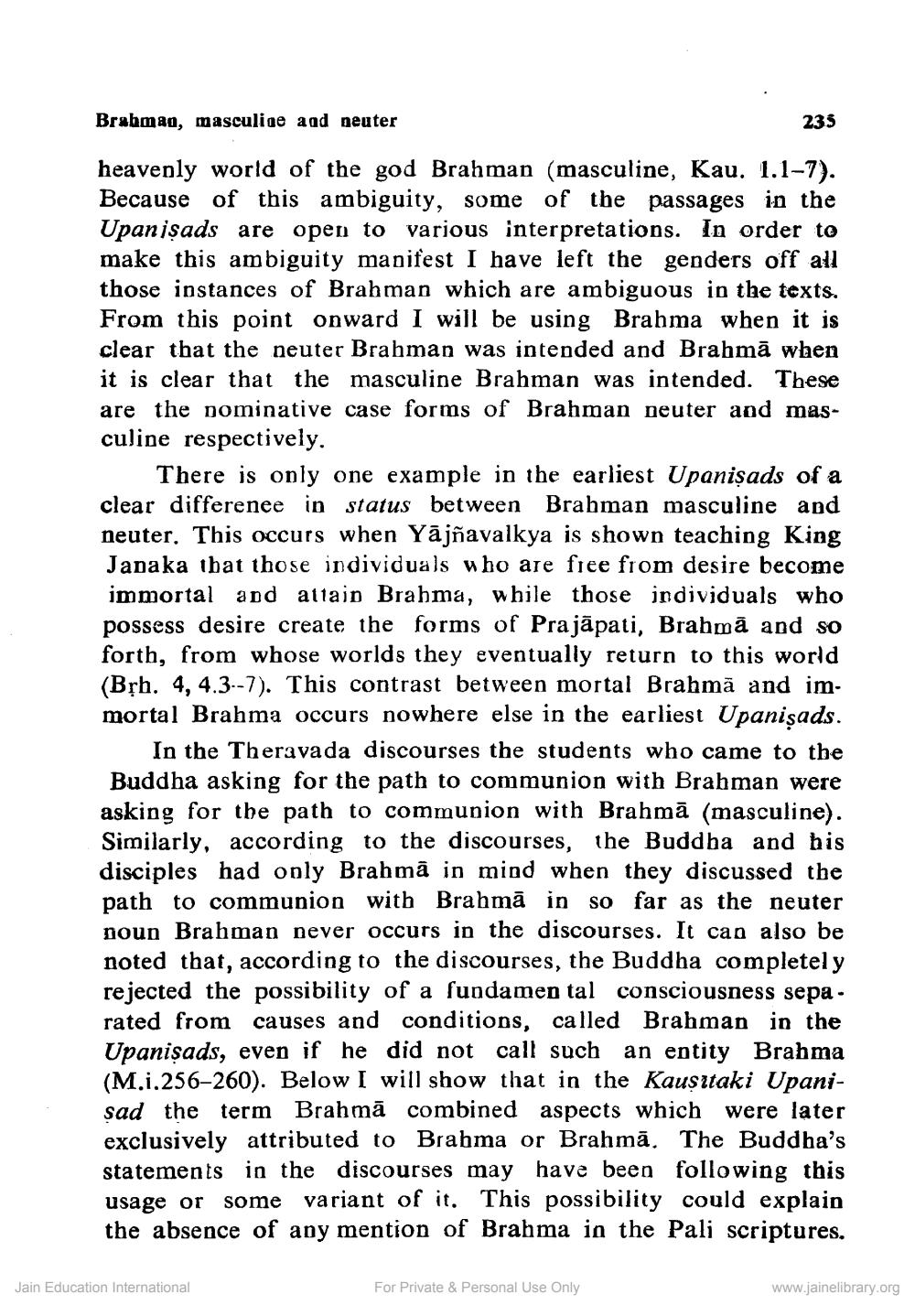________________
Brahman, masculine and neuter
heavenly world of the god Brahman (masculine, Kau. 1.1-7). Because of this ambiguity, some of the passages in the Upanisads are open to various interpretations. In order to make this ambiguity manifest I have left the genders off all those instances of Brahman which are ambiguous in the texts. From this point onward I will be using Brahma when it is clear that the neuter Brahman was intended and Brahmā when it is clear that the masculine Brahman was intended. These are the nominative case forms of Brahman neuter and masculine respectively.
There is only one example in the earliest Upaniṣads of a clear differenee in status between Brahman masculine and neuter. This occurs when Yajnavalkya is shown teaching King Janaka that those individuals who are free from desire become immortal and attain Brahma, while those individuals who possess desire create the forms of Prajapati, Brahmā and so forth, from whose worlds they eventually return to this world (Brh. 4, 4.3--7). This contrast between mortal Brahma and immortal Brahma occurs nowhere else in the earliest Upanisads.
235
In the Theravada discourses the students who came to the Buddha asking for the path to communion with Brahman were asking for the path to communion with Brahmā (masculine). Similarly, according to the discourses, the Buddha and his disciples had only Brahma in mind when they discussed the path to communion with Brahmā in so far as the neuter noun Brahman never occurs in the discourses. It can also be noted that, according to the discourses, the Buddha completely rejected the possibility of a fundamen tal consciousness separated from causes and conditions, called Brahman in the Upanisads, even if he did not call such an entity Brahma (M.i.256-260). Below I will show that in the Kausitaki Upanisad the term Brahma combined aspects which were later exclusively attributed to Brahma or Brahma. The Buddha's statements in the discourses may have been following this usage or some variant of it. This possibility could explain the absence of any mention of Brahma in the Pali scriptures.
Jain Education International
For Private & Personal Use Only
www.jainelibrary.org




